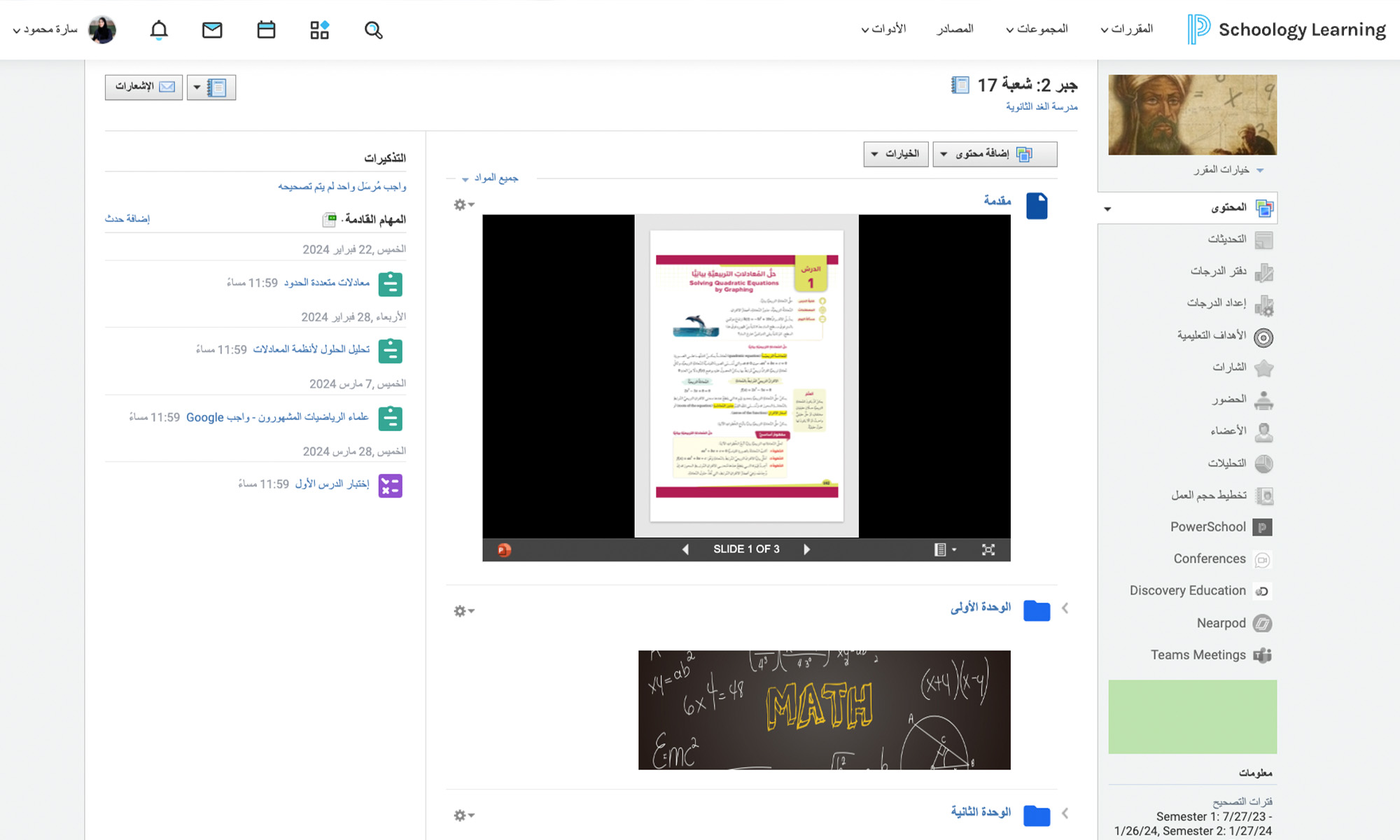News
PowerSchool Launches Arab Version Of Its EdTech Platform
The cloud-based solution is now available to Middle Eastern users, helping schools with administrative, communication, and classroom workflows.

PowerSchool, a leading cloud-based education software provider, today announced the launch of newly translated and localized solutions for the UAE and wider Gulf Coast and Middle East region.
Native-Arabic speaking educators will now be able to accomplish critical administrative, communication and classroom workflows using newly-updated Arabic translations, as well as access a right-to-left oriented interface, Hijri calendar overlay, and more.
PowerSchool’s platform is able to log student records and create reports in their native language, while teachers can now create enhanced, personalized lessons for their students and digital forms for parents.

Finally, PowerSchool’s multi-language AI-powered assistant is also in development, and the company plans to launch the tool in the Middle East in the near future.
“With the UAE and other GCC countries prioritizing digital transformation in education, we are pleased to announce the availability of our educational and operational products in Arabic,” revealed Stewart Monk, Senior Vice President & General Manager, International at PowerSchool. “This also aligns with our commitment to provide mission-critical support to education leaders to provide personalized learning for students globally”.
Also Read: Top Free AI Chatbots Available In The Middle East
Along with the launch of a new Dubai office in 2023, PowerSchool seems highly invested in localized Arabic products. The latest announcement from the company strongly signals its commitment to the Middle East and GCC, and comes after the publication of its 2024 Education Focus Report, which takes a deep dive into the region’s education trends and developments.
“PowerSchool’s commitment to providing Arabic localization across its products reflects an understanding of their diverse user base and their commitment to inclusivity,” explained Mohammed Essam, PowerSchool Lead at ESOL Education. “This investment can lead to closer collaboration with educational institutions in the Middle East, fostering innovation and progress in the education sector. Overall, this is a promising direction that could benefit both PowerSchool and the educational community in the region”.
News
Samsung Smart Glasses Teased For January, Software Reveal Imminent
According to Korean sources, the new wearable will launch alongside the Galaxy S25, with the accompanying software platform unveiled this December.

Samsung appears poised to introduce its highly anticipated smart glasses in January 2025, alongside the launch of the Galaxy S25. According to sources in Korea, the company will first reveal the accompanying software platform later this month.
As per a report from Yonhap News, Samsung’s unveiling strategy for the smart glasses echoes its approach with the Galaxy Ring earlier this year. The January showcase won’t constitute a full product launch but will likely feature teaser visuals at the Galaxy S25 event. A more detailed rollout could follow in subsequent months.
Just in: Samsung is set to unveil a prototype of its augmented reality (AR) glasses, currently in development, during the Galaxy S25 Unpacked event early next year, likely in the form of videos or images.
Additionally, prior to revealing the prototype, Samsung plans to introduce…
— Jukanlosreve (@Jukanlosreve) December 3, 2024
The Galaxy Ring, for example, debuted in January via a short presentation during Samsung’s Unpacked event. The full product unveiling came later at MWC in February, and the final release followed in July. Samsung seems to be adopting a similar phased approach with its smart glasses, which are expected to hit the market in the third quarter of 2025.
A Collaborative Software Effort
Samsung’s partnership with Google has played a key role in developing the smart glasses’ software. This collaboration was first announced in February 2023, with the device set to run on an Android-based platform. In July, the companies reiterated their plans to deliver an extended reality (XR) platform by the end of the year. The software specifics for the XR device are expected to be unveiled before the end of December.
Reports suggest that the smart glasses will resemble Ray-Ban Meta smart glasses in functionality. They won’t include a display but will weigh approximately 50 grams, emphasizing a lightweight, user-friendly design.
Feature Set And Compatibility
The glasses are rumored to integrate Google’s Gemini technology, alongside features like gesture recognition and potential payment capabilities. Samsung aims to create a seamless user experience by integrating the glasses with its broader Galaxy ecosystem, starting with the Galaxy S25, slated for release on January 22.





















